Partnership
In this page
The Doctorate in Advanced and Sustainable Agricultural and Forestry Systems considers the link with the territory as a fundamental condition for the success of the third cycle of university education that it aims to provide.
The rich partnership with various entities (different institutions, companies, start-ups, spin-offs) operating in the area, which actively collaborate in the activities of the Doctorate, proves its roots in the territory. In fact, the main objective of this doctoral project is to improve the excellence of the regional production, university and research system.
Ente Terre Regionali Toscane
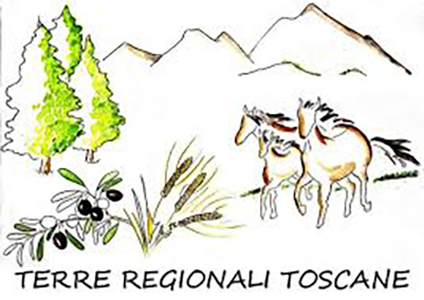
Terre Regionali Toscane performs the following functions:
- Management of the terrain bank, as a tool to facilitate entrepreneurial access to agricultural and forestry land; approval of operational guidelines for the optimal management of the assets of the Regional Agricultural and Forestry Heritage (Patrimonio Agricolo Forestale Regionale, PAFR), including the determination of the objectives to be achieved in terms of revenue;
- Verification of the conformity of the management plans of agricultural and forestry complexes adopted by the managing entities and coordinating their implementation;
- Management of agricultural enterprises and other agricultural and forestry areas owned by itself or by the Region, where it also carries out applied research, experimentation, and demonstration activities in the agricultural and forestry fields;
- Protection and enhancement of agricultural and forestry products and native Tuscan genetic resources; management of the regional stallion park;
- Promotion, coordination, and implementation of sustainable forest management and green economy development interventions; coordination of the "One Hundred Thousand Gardens in Tuscany" initiative.
- Svolge inoltre un ruolo fondamentale nell’ambito del trasferimento tecnologico e del supporto e partecipazione a progetti di ricerca, assumendo il ruolo di “demo-farm”.
It also plays a fundamental role in technology transfer and in supporting and participating in research projects, assuming the role of a "demo-farm".
Institute for Sustainable Plant Protection (IPSP)
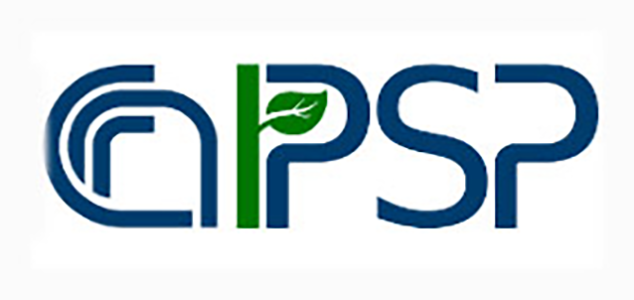
This institute, belonging to the National Research Council (CNR), has been operating for years in the field of protection of agroforestry systems, establishing itself as one of the national references for the studies in this sector. The topics addressed by this institute deal with plant protection and can range from the study of plant responses to biotic and abiotic stresses, to the cellular and molecular mechanisms involved in disease resistance, and to the study of adaptation processes.
Topics related to plant protection are also covered, including the possibility of using new technologies and early diagnostic methods. IPSP-CNR researchers have long been committed to training students from the faculties of agriculture, especially in Florence, offering internships, placements, and thesis opportunities, and contributing to the educational offer with seminar activities.
The PhD student will therefore be able to take advantage of their knowledge and the institute's well-equipped laboratories to develop their research, studying some innovative aspects of the protection of agricultural-forestry systems. Furthermore, the extensive network of collaborations established over time by this institute at both national and international levels will allow the PhD student to come into contact with important international entities in the aforementioned topics, enabling them to broaden their knowledge.
The participation of IPSP-CNR research staff in the Pegaso PhD program will serve to strengthen the already existing synergies with university partners. Additionally, by providing a multidisciplinary and excellent environment, the CNR Institute will surely contribute to increasing the PhD student's skills.
Center for Agriculture and Environment Research CREA

The CREA Center conducts studies and research for the characterization, sustainable management, and spatiotemporal modelling of agricultural and forest ecosystems through an interdisciplinary and multidisciplinary approach.
It focuses in particular on developing monitoring and management systems for agricultural and forest soils to preserve soil fertility and production quality, characterizing the response of production systems to climate changes, optimizing crop systems agronomically, for the use of resources, with productive and environmental purposes, and finally developing environmental indicators and biophysical models.
The Center provides consultancy to MASAF (Ministero dell’Agricoltura, Sovranità Alimentare e delle Foreste) regarding soil quality and participates in technical tables for the transfer of innovation in organic farming through a participatory approach. Additionally, it supports MASAF in drafting technical-scientific position papers to be presented at national and European levels in response to activated research actions.
Consejo Superior de Investigaciones Científicas (CSIC)

The CSIC is a Spanish state agency under the Ministry of Science, Innovation, and Universities. Its fundamental purpose is to develop and promote research for the benefit of scientific and technological progress, for which it is open to collaboration with Spanish and foreign entities. According to the SIR World Report 2012 classification, it is the largest public research institution in Spain and was the ninth largest in the world in 2012 and the 16th in 2017. It is multidisciplinary and conducts advanced research in all scientific areas through over 130 centers distributed across all autonomous communities of Spain.
The CSIC will collaborate with the SAFAS PhD program by interfacing with the Desertification Research Center (CIDE), which is dedicated to studying the causes, factors, and processes of desertification. Specifically, the Water and Crops research group will provide high-level training activities (seminars and internships) and support PhD students with tutoring activities on topics related to water and energy savings in complex agricultural systems, the development of irrigation decision support systems based on mass and/or surface energy balance models. Furthermore, CIDE-CSIC will support the PhD program by making laboratories available for in-depth studies on agrohydrological sensor technology and modelling.
Sfera Agricola Srl

Sfera Agricola is an Italian startup specialized in hydroponic agriculture, i.e., growing vegetables without soil, using only water and nutrients. This method saves up to 90% of water and soil compared to traditional crops, and avoids the use of pesticides and polluting machinery.
Sfera Agricola has built one of the largest and most advanced hydroponic greenhouses in Italy and Southern Europe in Gavorrano (Grosseto), where it produces high-quality, nickel-free certified tomatoes, cabbages, basil, and other vegetables.
Sfera Agricola's products are delivered within 24 hours of harvest and are appreciated for their taste and genuineness. Sfera Agricola is an example of innovation and sustainability in the agricultural sector, in line with the objectives of the 2030 Agenda for sustainable development.
Sfera Agricola has a strong focus on research and development, aiming to constantly improve its production processes and offer consumers healthy, safe, and tasty food. Therefore, Sfera Agricola's participation in research doctorates in smart agriculture will contribute to the dissemination of scientific and technological knowledge in the sector.
Participating in research doctorates is also an opportunity for Sfera Agricola to create synergies with the academic world and other actors in the agri-food system, to promote innovation and competitiveness. Finally, participating in research doctorates would be a way for Sfera Agricola to enhance its human resources by offering them qualifying and stimulating training paths
AGROBIT srl

AGROBIT is an innovative startup founded in 2022 in Florence, which develops drone remote sensing services, decision support systems (DSS), and digital imaging solutions to optimize the agricultural sector.
The main AGROBIT's product is a site-specific DSS mobile app (iAgro) for agricultural operators and agrochemical industries, aiming to optimize and reduce the use of agrochemicals and water in tree crops by up to 60%.
The app follows the guidelines of the European Green Deal for the reduction of chemical inputs and the Farm to Fork (F2F) Strategy for sustainable agriculture.
AGROBIT's main service is iDrone, a drone remote sensing service that allows crop mapping and creates vigor zoning maps and water stress maps to rationalize chemical inputs and water use.
AGROBIT has a strong focus on research and development of digital technologies to improve the efficiency of agrochemicals and agricultural practices, such as irrigation.
This is one of the reasons AGROBIT is an active supporter of the SAFAS PhD program, focusing students' training on smart agriculture topics. AGROBIT will benefit from synergies with the academic world and other actors involved in the project, gaining in innovation and competitiveness.
LaMMA

LaMMA (Laboratory for Environmental Monitoring and Modelling for Sustainable Development) is a public consortium between the Tuscany Region and the National Research Council. Due to its unique nature, positioned between the research world and public service, LaMMA can provide high-value-added services to the Tuscan territory and beyond, developed within the National Research Council.
The synergy between the research component provided by the CNR and the operational needs required by regional services has led LaMMA over the years to develop high-value-added technical-scientific products and services, starting from developments in numerical modelling for weather and oceanographic forecasting, becoming the first operational meteo-oceanographic service.
These skills have earned it a leading role even beyond regional borders, such as support in managing the removal of the Costa Concordia wreck from the Giglio Island (2012-2014), the memorandum of understanding with the National Coast Guard for the use of LaMMA meteo-marine modeling for Safe and Rescue operations in Italian seas, including managing migrant traffic in the Sicilian Channel, and appointment as a member of the National Meteorology and Climatology Advisory Committee of the new ItaliaMeteo Agency.
While the Tuscany Region is the main client of the Consortium, through the ordinary activities and services provided for by law, including support for the Civil Protection system, LaMMA is heavily engaged in research and development activities through participation in national and international calls for projects and, to a lesser extent, with services developed for the business world.
D.R.E.Am. Italia

D.R.E.Am. Italia operates in the agricultural, forestry, wildlife, and environmental sectors, providing services at national and international levels. The company aims to contribute to sustainable rural development, environmental and wildlife protection, and territory requalification.
It also provides design and project management services, management and conservation, monitoring and control, consultancy and training to National and Regional Public Bodies, Local Public Administrations and Organizations, Associations, and Public and Private Enterprises.
The company is active in the market through its Business Units oriented towards specific market segments, aiming to manage relationships with clients and customers to understand their needs and propose ad hoc projects and solutions. D.R.E.Am.
Italia collaborates with a series of qualified and complementary partners, with whom it defines strategic development lines, forms joint ventures, conducts commercial initiatives, and participates in national and international calls and tenders.
CIA, Agricoltori Italiani
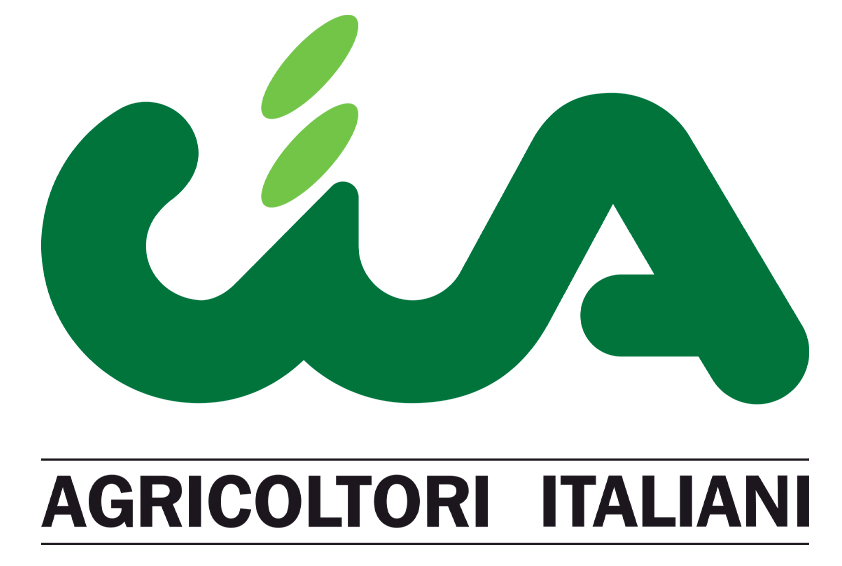
CIA is one of the largest agricultural category organizations in Europe, representing the interests of agricultural entrepreneurs and their businesses. Among its activities, CIA promotes research on sustainable and quality agricultural systems, aiming to enhance natural resources, improve productivity and competitiveness of farms, and contribute to environmental and landscape protection.
Sustainable agriculture is a strategic challenge for the future of the primary sector and means not only reducing the environmental impact of agricultural activities but also ensuring the safety and quality of food, diversifying productions, technological innovation, valuing local traditions and cultures, and creating employment and income in rural areas.
CIA believes that research on sustainable and quality agricultural systems is an opportunity for agricultural entrepreneurs to increase the added value of their businesses, respond to the needs of consumers and citizens increasingly attentive to environmental and social sustainability, and contribute to the objectives of the 2030 Agenda for sustainable development.
Consorzio a Tutela del Vino Morellino di Scansano
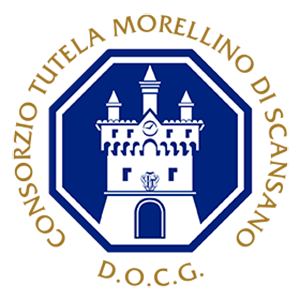
The Consortium was founded in 1992 by a small group of producers determined to support and enhance their Denomination of Controlled Origin (DOC) product through promotion and protection actions. Over the years, the Consorzio has gradually expanded its associative sector, now including more than 200 members, over 90 of whom have at least one label of Morellino di Scansano on the market.
Thanks to this strong territorial and productive representation (over 66% of the entire wine production of the Denomination), the Consorzio was recognized in September 2004 with the task of applying erga omnes controls, i.e., on all Morellino grape and wine producers, members or not, to guarantee the consumer the quality and originality of Morellino di Scansano, by specific mandate of the Ministry of Agricultural and Forestry Policies. The Consorzio participated in the 2017 PS-GO measure with a project titled "Monitoring the Market Trend of Major Tuscan Denomination Wines and Economic Benchmarking of the Supply Chain for Market Policy Management."
In 2022, it presented a project proposal (measure 16.2) named PRECISIAMO "The Precise Management of the Vineyard for the Improvement of the Aromatic Profile of Morellino di Scansano" focused on applying precision viticulture techniques in the vineyard to improve wine quality. The role of the Consorzio a Tutela del Morellino di Scansano will be to host and support precision olive cultivation experiments at members' olive groves, also to disseminate the results among farmers and thus promote the transition to more technological and sustainable agriculture models.
Consorzio per la tutela dell’olio extravergine di oliva Toscano IGP
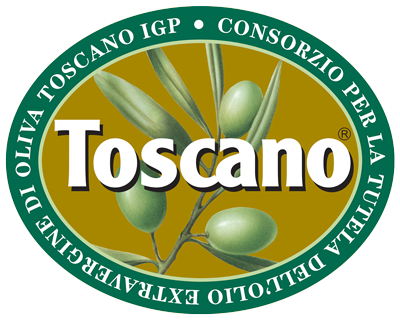
The Consortium was formed on November 13, 1997, by the cooperation of some Tuscan olive growers, in accordance with Article 2602 of the Civil Code. Ministerial Decree No. 15419, issued on August 3, 2011, recognized the Consortium's functions as protection, promotion, enhancement, consumer information, and general care of Tuscan PGI oil, or Protected Geographical Indication.
Since its founding, the Consortium has grown to nearly 9,000 members, a significant milestone due to the producers' sense of community and the quality of their work, allowing it to protect and promote genuine Tuscan extra virgin olive oil in Italy and abroad. The Consortium's legal headquarters are in Florence.
The Consortium's functions include: the protection of extra virgin olive oil with the Tuscan Denomination, also when translated into foreign languages, in geographical terms in any form, pursuant to article 13 of Regulation (EC) no.510/2006 and other legislation on the subject; the supervision of the production and trade of extra virgin olive oil with the Tuscan Denomination, in collaboration with the Central Inspectorate for the protection of quality and repression of fraud of agri-food products of the Ministry of Agricultural, Food, and Forestry Policies; the enhancement of the production of extra virgin olive oil with the Tuscan Denomination; the promotion, dissemination and knowledge of the collective brand used for extra virgin olive oil with the Tuscan Denomination; the promotion of the consumption of extra virgin olive oil with the Tuscan Denomination in Italy and abroad, as well as the development and support of all kinds of initiatives aimed at improving Tuscan extra virgin olive oil and increasing its image and notoriety, including participation in associations or consortium organizations..
The Consortium is constantly working to improve quality and support the productive growth of the Tuscan olive system based on Tuscan varieties.
The Consortium for the Protection of Tuscan PGI Oil will host and support precision olive farming experiments at the members' olive groves, with the goal of disseminating the results obtained among farmers and thus promoting the transition to more technological and sustainable models of agriculture.
Euroambiente (Zelari)

It is headquartered in Pistoia and has been in the landscape industry since 1979. With enthusiasm, it improved design and implementation techniques, introduced cutting-edge technologies, and integrated traditional maintenance systems.
Clients include businesses, government agencies, credit institutions, tourism companies, general contractors, and private investors.
Euroambiente is a member of the Zelari Group, and its extensive and diverse experience, as well as collaboration with other Group companies, have resulted in a thorough understanding of environmental issues, allowing it to identify the most effective solutions.
Migliarino Regional Park, San Rossore, Massaciuccoli
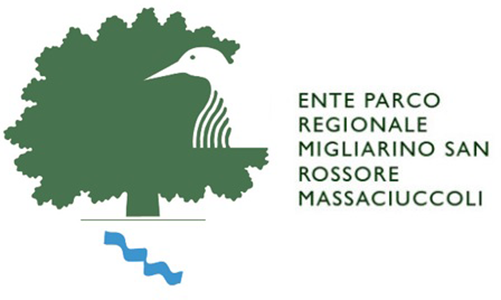
The Park is a protected natural area established by LR Toscana No. 61 on December 13, 1979. The Park's territory extends along the coastal strip of the provinces of Pisa and Lucca, including the municipalities of Pisa, Viareggio, San Giuliano Terme, Vecchiano, and Massarosa, totaling over 23,000 hectares. In addition, the Park directly manages an organic farm of about 500 hectares.
The Park encourages the use of sustainable agronomic techniques on its land and has already experimented with precision agriculture (H2020 AFarCloud Project, Aggregate Farming in the Cloud, ID = 783221).
The Park will host and support precision agriculture and agroecology experiments, as well as disseminate the results to farmers, promoting the transition to more sustainable agricultural models.
CNR-ISTI

It is the CNR's largest computer science institute, focusing on information science, related technologies, and a diverse range of applications.
The staff of approximately 220 people works to increase knowledge, develop and experiment with new technologies, and demonstrate their effectiveness in a variety of application areas.
ISTI is actively involved in academic collaborations as well as cooperative research and development programs on a national and international scale. Furthermore, ISTI is actively involved in educational activities at the degree, master's, and doctoral levels, contributing to a wide range of training initiatives developed in collaboration with national and international universities.
The Institute also has extensive experience and a strong reputation in the design and implementation of electronic infrastructures, as well as technology transfer activities aimed at industry and public administration.
ISTI's role will be to collaborate on the implementation of technical solutions capable of facilitating the interpretation of data obtained through remote and proximal sensing, allowing for broader and more effective dissemination of precision farming techniques among agricultural companies in our region.
ISTI will also be able to host doctoral students for thematic insights into the use of information technology (computer vision, deep learning, and decision support systems).
EDO RADICI FELICI
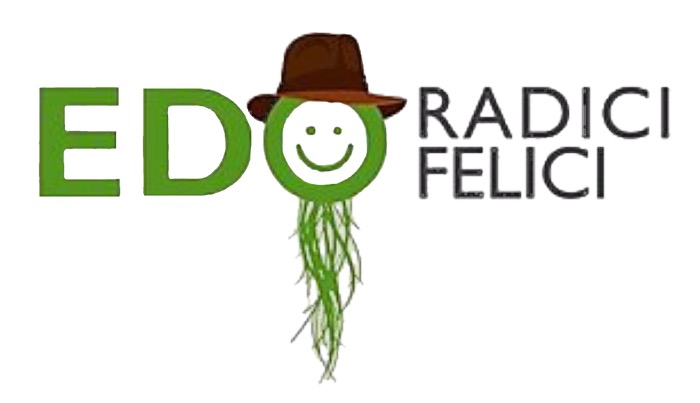
It is an innovative Small Medium Enterprise (SME) with its operational headquarters in Tuscany that designs and builds above-ground systems for the cultivation of plant species using aeroponic technology, such as vertical farms. In recent years, it has worked with a variety of research institutions and universities to develop protocols for producing biofortified iodine and selenium products, as well as to implement sensors to optimize fertigation management in above-ground crops, with an emphasis on aeroponics.
In 2018, it built the first commercial-scale pilot facility for aromatic herb production at the Parvus Flos farm in Radicondoli (SI), and the airfloating cultivation system will be patented in 2021. EDO Radici Felici's role will be to provide doctoral students with the opportunity to spend a training period in the company's Research and Development sector, conducting experiments on company-relevant topics.
Gruppo Ferrero Mangimi

It is a traditional animal feed manufacturer that has been active in the Italian and international markets for 60 years, with six production facilities. The main and historic headquarters are in Farigliano (CN), and the main facility is in Fossano (CN).
Last year, it produced roughly 7 million quintals of feed for approximately 3500 breeders. The company runs an internal analysis laboratory that performs over 30,000 checks per year to ensure the quality and safety of the raw materials and feeds it produces, as well as an active research and development department that completes more than four projects per year.
Ferrero Mangimi would be responsible for providing doctoral students with company internship opportunities as well as developing innovative animal feeding solutions in collaboration with the Ferrero company's technician network and analysis laboratory.
Consorzio Tutela del Pecorino Toscano DOP
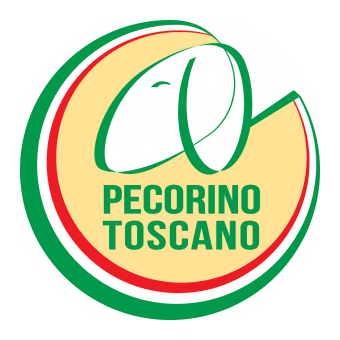
Il Consorzio nasce il 27 febbraio 1985 e riunisce 900 allevatori di cui circa 200 associati; 17 caseifici, due stagionatori e un confezionatore. Da oltre trenta anni garantisce che solo il pecorino che rispetta il disciplinare di produzione sia chiamato, riconosciuto e venduto come Pecorino Toscano DOP, tramandandone la tradizione e rafforzandone l’identità a livello nazionale e internazionale.
Il 2 luglio 1996 il Pecorino Toscano entra a far parte del paniere dei prodotti a Denominazione di Origine Protetta (DOP). Il Consorzio Pecorino Toscano DOP si occupa di: tutelare e vigilare sulla produzione e sul commercio della DOP e sull’uso della sua denominazione; promuovere ogni utile iniziativa intesa a salvaguardarne la tipicità e le caratteristiche peculiari da ogni abuso, concorrenza sleale, contraffazione, uso improprio della DOP, comportamenti vietati dalla legge; collaborare con il MIPAF alla vigilanza, tutela e salvaguardia della DOP a mezzo agenti vigilatori; collaborare con Ue, Stato, Regioni, Province Autonome, Enti pubblici e privati, e con gli organismi di controllo della DOP per la migliore valorizzazione e tutela della DOP stessa mettendo a disposizione la propria organizzazione; sostenere i soci nelle attività di aggiornamento e autocontrollo della filiera produttiva; promuovere il consumo e la diffusione del marchio Pecorino Toscano DOP a livello nazionale e internazionale attraverso eventi, campagne on e off line. Nel corso degli anni, inoltre, il Consorzio ha dato vita a iniziative e collaborazioni volte a promuovere la ricerca scientifica sul latte ovino e sul Pecorino Toscano DOP, anche al fine di migliorare qualitativamente la produzione formaggio. Il Consorzio sosterrà il dottorato favorendo la partecipazione delle aziende del consorzio nell’ambito dei progetti di ricerca dei dottorandi e la raccolta dei dati aziendali.
Coldiretti Toscana
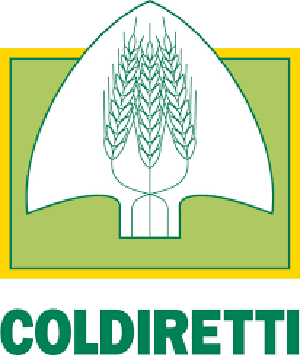
The Consortium was established on February 27, 1985, and now has 900 breeders, of whom approximately 200 are members; 17 milking facilities, two aging facilities, and one packager. For over 30 years, it has ensured that only pecorino produced in accordance with production regulations is referred to, recognized, and marketed as Tuscan Pecorino PDO, preserving tradition and strengthening its identity on a national and international scale.
On July 2, 1996, Pecorino Toscano was added to the list of products with Protected Designation of Origin (PDO). The Pecorino Toscano PDO Consortium is in charge of: protecting and supervising the production and trade of the PDO and the use of its denomination; promoting every useful initiative aimed at safeguarding its typicality and peculiar characteristics from any abuse, unfair competition, counterfeiting, improper use of the PDO, or behaviors prohibited by law; collaborating with MIPAF to supervise, protect, and safeguard the PDO through supervisory agents; collaborating with the EU, States, Regions, Autonomous Provinces, public and private bodies, and PDO control bodies for the best enhancement and protection of the PDO itself by making its organization available; and assisting members in updating and self-monitoring production chain activities; promoting the consumption and distribution of the Pecorino Toscano PDO brand on a national and international scale through events, online and offline campaigns. Over the years, the Consortium has launched initiatives and collaborations to promote scientific research on sheep's milk and Pecorino Toscano PDO, as well as to improve cheese production quality. The Consortium will promote the doctorate by encouraging consortium companies to take part in doctoral student research projects and collect company data.
Aedit Srl
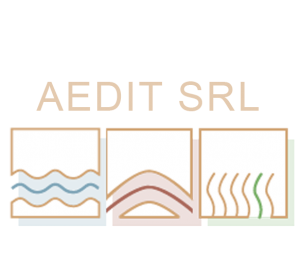
Descrizione
It is a spin-off company of the Sant'Anna School of Advanced Studies (Pisa, Italy), founded in 2001, whose core business is focused on the development of ICT tools applied to support agro-environmental monitoring networks, management of crop protection databases, development of the DSS for farmers or local authorities, implementation of the geographic information system, and web-based database to manage monitoring networks in the agricultural and environmental
Aedit will assist the doctorate with company internships, the design and development of innovative smart agriculture solutions, and the integrated management of sensor and georeferenced monitoring data.
Maremma Regional Park
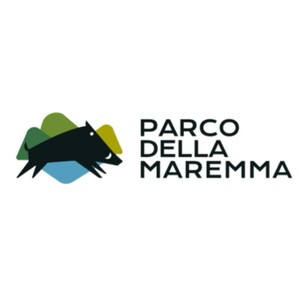
From Principina a Mare, through the mouth of the river Ombrone, to Talamone, along 25 km of the Tuscan coast, the Maremma Park extends, with a total protected area of 8,902 hectares and a contiguous area of ha. 9,097 hectares, made up of a chain of hills descending towards the sea, with sandy beaches and cliffs, surrounded by marshes, pine forest, cultivated fields and pastures. The Park of the Maremma was established in 1975 (L.R.T. n. 65), the second regional park in Italy and the seventh in the world. The territory of the Park is an area of great public interest, according to the ministerial decrees issued between June and October 1962, as well as a legally protected area, and therefore falls under the provisions of the Cultural and Landscape Code. The subsequent Regional Law no. 24 of 16 March 1994, enacted after the approval of Law no. 394/1991 - Framework Law on Parks and Protected Areas - transformed the Maremma Park from a consortium of municipalities into a public body with non-economic autonomy and legal personality, defining more clearly and precisely the constituent bodies and specific competences. In the light of the innovations introduced by the National Framework Law and the Regional Institutional Law, the aims and objectives of the Park can be summarised in the following scheme, also with reference to the content of the technical implementation standards annexed to the current Park Plan:
- the conservation and redevelopment of natural and environmental values and characteristics through appropriate disciplines that guarantee compatible uses, as well as through "active protection" interventions that favor the reconstitution of environmental balances and appropriate man-nature relationships;
- the protection and enhancement of historical, architectural, and cultural values through appropriate disciplines that guarantee appropriate uses and usability;
- the valorisation of the specific productive activities of the area, stopping the phenomena of exploitation and improper use, maintaining and/or improving the agro-forestry-pastoral activities;
- the establishment of a social use of the park's values through a tourist-recreational system that allows enjoyment of the area and its resources that is not harmful to the environment;
- the promotion of scientific research and initiatives for environmental information and education for a more widespread knowledge and awareness of natural balances and human values, as representation and communication at a socio-cultural level of a new image of the territories affected by the park and from the contiguous area;
- the promotion of sustainable socio-economic development throughout the territorial scope of application. With the approval of regional law n°30 of 19 March 2015 - rules for the conservation and enhancement of the regional naturalistic-environmental heritage, the purposes of the parks are further defined:
- the conservation, restoration, and improvement of the natural environment and natural and semi-natural habitats, as well as, the protection of wild plant and animal species, also through the interventions necessary to achieve or restore optimal faunal balances;
- the preservation and correct use of the natural resources present, with particular reference to biodiversity and geodiversity;
- the development of eco-sustainable economic activities;
- the conservation and enhancement of landscape and historical-cultural values. Finally, it is appropriate to indicate the following purposes reported in the Statute of the Maremma Regional Park, approved by resolution of the Tuscany Region Council n°124 of 5 December 2007:
- the institutional protection of the natural, environmental, and historical peculiarities of the Maremma, according to their social use, and for the promotion of scientific research and environmental education;
- the protection of naturalistic, landscape and environmental values also through the improvement of the living conditions of local communities and the creation of a balanced relationship between economic activities and the ecosystem, for sustainable development.
Bluebiloba srl

Bluebiloba innovative startup srl is a spin-off of the University of Florence, founded in 2018 in Florence and active in the provision of innovative services in the IT sector of precision forestry. The Bluebiloba team is made up of about 20 people, coming from different sectors in a multidisciplinary way: forestry, IT, commerce. Bluebiloba is a member of the ForTech joint laboratory with the DAGRI department of UNIFI. The company has extensive experience in territorial management with a circular, shared, and multi-scale approach, in remote sensing and in solutions for environmental protection, improvement of human well-being, climate change mitigation, and sustainable development. Over the years, he has also gained extensive experience in governance and stakeholder capacity building, as well as experience in managing European funds and development programmes. He has developed specific skills in the development of tailor-made IT solutions and in the implementation of bottom-up collaborative and sustainable territorial planning projects based on the involvement of businesses, public and private institutions. It also actively supports an industrial doctorate in collaboration with the University of Sassari, linked to the ITC development of sensors to monitor the stability of trees in an urban environment, and actively collaborates with doctoral students from the University of Florence, DAGRI department, providing support for field surveys using technologies such as drones and ground sensors. For this reason, Bluebiloba actively supports the SAFAS PhD, allowing students to interface with issues related to precision forestry, satellite monitoring and developing new sensors. Bluebiloba will benefit from the synergies with the academic world and the actors involved in the project, allowing us to work even better for the innovation and competitiveness of the forestry sector.
Last update
21.02.2025

